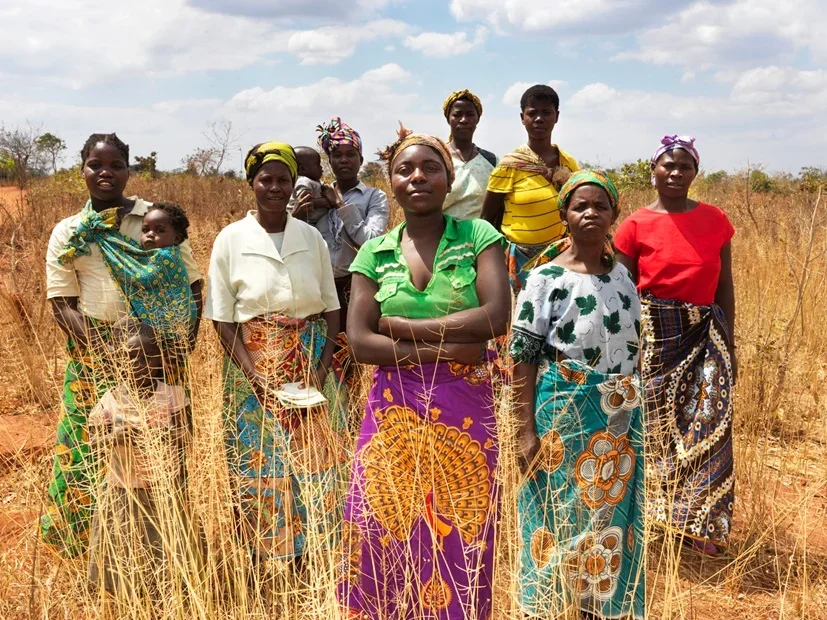Atlanta, Ga., October 10, 2024 – CARE’s Women’s Economic Justice (WEJ) team today released its 2024 Impact Report, Her Money. Her Future. In addition to showcasing how the organization has supported and uplifted women globally through economic empowerment initiatives, the report also introduced a new financial return on investment (ROI) metric which focuses on women’s economic programs. To that end, the report reveals that CARE’s Village & Loan Associations (VSLA) programs generated $9 in women’s income and savings for every $1 invested. This industry-leading cost-effectiveness metric sets a standard in the global development sector.
“To fix the broken market systems that exclude women, we must listen to their priorities and design together with them to support their ambitions,” said Mark Muckerheide, Associate Vice President of Programs, CARE WEJ. “This report goes beyond success stories. Quantifying the economic impact of our programs enables us to benchmark our work better and improve the resources women need to achieve their goals.”
Her Money. Her Future. reviews three critical areas of WEJ’s focus: women’s economic power, women’s financial ROI and market systems change. It shares inspiring stories from women like Violeta Pacheco, a business owner in Peru, and Sarah Ruben, a spice farmer in Tanzania, revealing how their participation in CARE’s programs transformed their financial independence and community leadership.
Key findings from the report include:
- Increasing Women’s Income: CARE’s savings group programs have led to 80-89 percent of women reporting income growth, demonstrating the effectiveness of financial inclusion and support systems.
- A Growing Impact: Since 2020, over 6 million people have joined CARE’s savings groups, with 78 percent being women, leading to enhanced economic agency, self-confidence, decision-making power and social cohesion.
- Improving Access to Finance: 150k entrepreneurs have increased access to financial resources through CARE programs, including business training. More than 79 percent of women entrepreneurs report increased confidence in running their businesses.
- Scaling Proven Models: Nearly all of CARE’s WEJ projects (91 percent) are working to scale evidence-based models for impact, which CARE knows create long-term impact and market systems change.
- Partnership-Driven Progress: 67 percent of CARE’s WEJ projects are implemented with local partners, fostering local ownership and ensuring that interventions are rooted into communities for lasting change.
For the report, WEJ used cost-effectiveness measures to establish benchmarks to drive continuous improvement in programming. In 2024, CARE worked with the International Initiative for Impact Evaluation (3ie), a mission-driven, non-profit organization, to evaluate data on CARE’s programs.
“CARE is, to our knowledge, the first development partner to attempt to benchmark the impact per dollar of its programming to the impact per dollar of unconditional cash transfers,” said Daniel Handel, author of CARE Cash Benchmarking Report, 3ie. “As first movers in the industry, they deserve ample credit for leading by example to hold their women’s economic justice programming to a credible minimum standard.”
CARE urges the global development sector to explore benchmarking for women’s economic outcomes. While CARE’s cost-effectiveness data shows transformative results, more gender-specific data is needed to measure income growth and close the gender gap. The sector must commit to tracking both financial progress and critical shifts in women’s agency to bridge current market failures.
“When women gain economic power, it catalyzes broader societal change,” added Tara Davis, Senior Director, CARE WEJ. “This report demonstrates that when we invest in women, those investments pay dividends not just in their own lives, but across their families and communities.”
Click here to view the full report.
CARE invites donors, partners, and other stakeholders to support its Women’s Economic Justice programs. Click here for more information about WEJ and its work.
About CARE
Founded in 1945 with the creation of the CARE Package®, CARE is a leading humanitarian and development organization fighting global poverty. CARE places special focus on working alongside women and girls. Equipped with the proper resources, women and girls have the power to lift whole families and entire communities out of poverty. In 2023, CARE worked in 109 countries, reaching 167 million people through more than 1,600 projects. To learn more, visit www.care.org
For media inquiries, please contact usa.media@care.org

